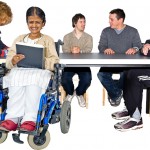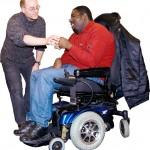
People with learning disabilities are more likely to have tooth decay, loose teeth, have gum disease, show higher levels of untreated disease and also have a larger number of extractions than those without disabilities, although evidence does exist to suggest that well-performed preventive procedures can prevent progression of dental disease and reduce tooth loss. The [read the full story…]




